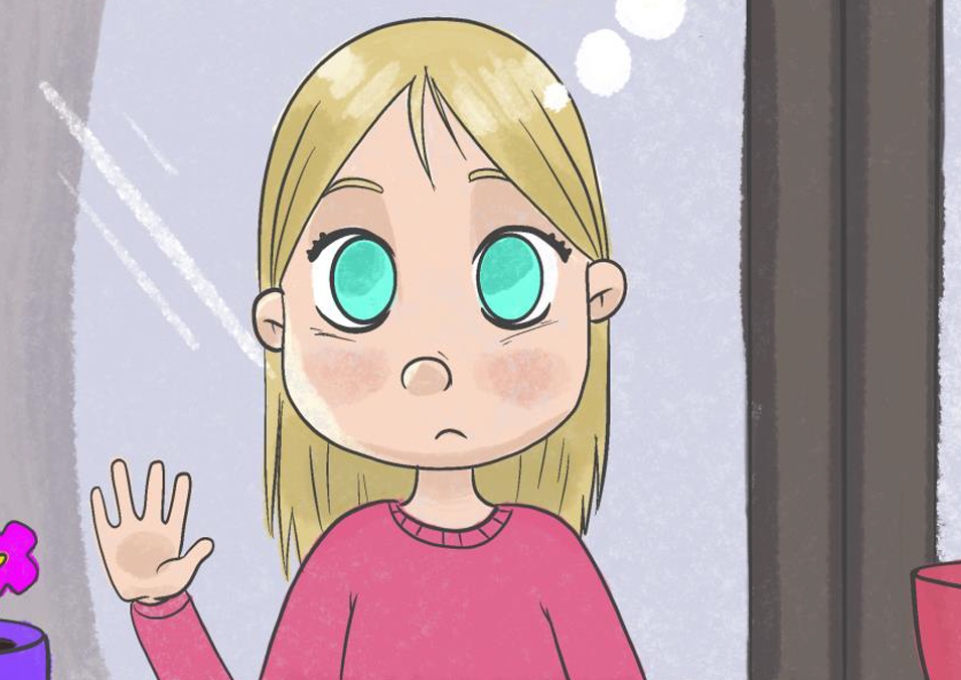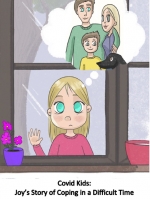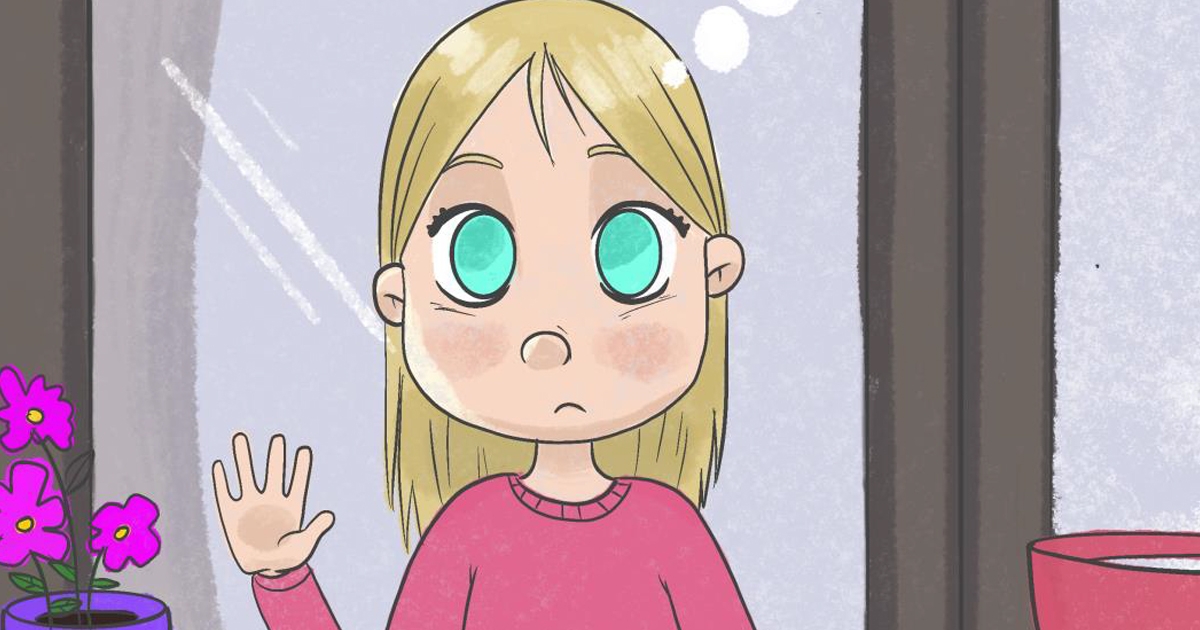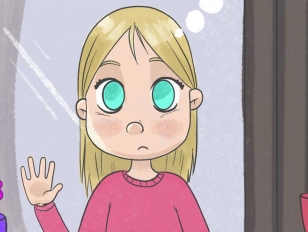
As difficult as it can be for adults to deal with the changes brought on by the coronavirus pandemic, the disruption to children’s daily lives can be even more difficult. They may not understand what’s happening around them, or why they can’t do the things they used to do, such as going to school or visiting friends. Additionally, parents may struggle with how to speak with their young children about the pandemic in a developmentally or age-appropriate manner.
 Nanci Monaco, associate professor in Buffalo State College’s Elementary Education, Literacy, and Educational Leadership Department and a child psychologist, aims to help children deal with the pandemic with her new book, Covid Kids: Joy’s Story of Coping in a Difficult Time. Monaco wrote the book with her husband, neuropsychologist Mark Schachter. She also has a website with resources for parents on how to help their children deal with the pandemic.
Nanci Monaco, associate professor in Buffalo State College’s Elementary Education, Literacy, and Educational Leadership Department and a child psychologist, aims to help children deal with the pandemic with her new book, Covid Kids: Joy’s Story of Coping in a Difficult Time. Monaco wrote the book with her husband, neuropsychologist Mark Schachter. She also has a website with resources for parents on how to help their children deal with the pandemic.
Monaco is the anti-bullying training coordinator for Buffalo State’s Dignity for All Students Act (DASA), a New York State child abuse and neglect training provider, and a 2012 Anne Frank fellow, conducting research on resiliency after trauma through the Buffalo State Resilience Project. Since 9/11, she has been actively involved in researching psychological trauma following disasters, assisting families displaced by tornadoes, hurricanes, and wildfires.
The Covid Kids project is part of her sabbatical on trauma and resilience; interest in the book has been international, national, and statewide.
____________________________________________________________________________
Name : Nanci Monaco
: Nanci Monaco
Title: Buffalo State College Associate Professor of Elementary Education, Literacy, and Educational Leadership
Monaco earned her Ph.D. in counseling and educational psychology from the University at Buffalo. She has taught in the State University of New York system since 1984 and has been a licensed psychologist in private practice for 21 years.
___________________________________________________________________________
Why did you decide to write a book for children on COVID-19?
The main reason was to serve as a prompt to get young children to talk about some of the things they are not sure of, such as wearing masks, social distancing, staying away from grandparents, and repetitive hand washing. Young children may miss preschool and wonder if their teacher or friends will forget about them. All of these issues are explored in the Covid Kids book, based on our research with actual young children. We wanted to write a children’s story so that children can process their anxiety from a psychological distance. Research shows that young children can more easily talk about a fictional character’s story than about their own experiences. If we merely ask children to talk about how they are doing, they may reflexively say “fine.” If we have them read someone else’s story and then talk about the characters in the book, what they are worried about, and what they are doing to cope, it prompts them to reflect on the story line, then relate it to their own experiences. Many of the materials on the market are simply questions and answers for parents about the pandemic. Having a story that systematically explores common fears can be quite beneficial, helping children disclose their concerns.
What are children worried about during the pandemic?
Children under 3 typically have limited awareness of the pandemic. They more frequently respond to disruptions in their routines, family conflict, or tension. Observant parents may see signs of regression, such as toilet training accidents, separation anxiety, etc. Older children tend to articulate their worries, especially with prompting, about things such as their parents or grandparents getting sick. The book depicts a little girl who is worried about her mom getting exposed to the virus through her job as a nurse. Children may have financial worries if a parent loses a job or there is less money for food. We tried to show in the book that the fears can be specific, just as these fears, or they can be feelings of general unease caused by seeing people wearing masks, seeing deserted streets, or having to unlearn behaviors such as running up to a neighbor and hugging them.
What are some things parents can do to help their children through the pandemic?
It’s important to be a very good listener, because many of the things children are afraid of are not necessarily what one might predict as an adult. Young children are intuitive thinkers, often responding to events by gut instinct. For example, I met a little boy who was afraid that COVID was in his food. His parents tried to explain that it’s not transmitted that way. He wasn’t eating and was afraid his food was contaminated. Ultimately, they just let him microwave his food for 20 seconds. They told him that even if there were any “germs” on the food, they would be killed in 20 seconds. Now he just zaps his food and eats his food without concern. Young children are not yet logical thinkers; their conceptualization of a threat is often inaccurate. Rather than offering an explanation above a child’s developmental level, it is easier to allow the child to reassert control in a manner consistent with their understanding of the problem.
Setting up some time for reflection, such as at bath time or story time, when children are relaxed, and then asking them about their day prompts children to disclose information they may not reveal at more hectic times. The book also talks about helping children relax through using all their senses. Deep breathing and mindfulness exercises can be done with older children. Young children profit from petting a dog or taking great-smelling bubble baths, leading to decreased stress. Parents can help children by keeping them on a structured routine, ensuring they get enough sleep, keeping their diet healthy, and talking to them about the things they can control, both individually and as a family, during the pandemic. Lastly, parents can assist children in becoming problem solvers, as they lead them in service projects, such as sending digital cards to first responders or collecting food for local food pantries. Focusing on the helpers as much or more than the disease is of comfort and provides balance. Parents also need to limit emotionality in front of young children. Watching parents cry or respond to scary news stories makes children feel that everything is desperate.
Can anything positive come from this crisis?
There are definite benefits from slowing down hectic schedules and resetting priorities. Many families report that they have learned more about their child’s curriculum and teacher since home schooling. Many families have engaged in cooking together, singing together, home improvement projects, or family game nights. We included a page in the book about the main character, whose father was a chef. She didn’t really know what he did, other than that he cooked food. The father explained that restaurants do a lot more than provide good food. They create a nice dining experience with flowers and music. He used the pandemic to provide a teachable moment for his daughter Joy to learn more about all the various things he does in his job when away from her. The book also shows how the mother teaches the children to psychologically connect with the grandparents they are physically missing. The parents also look for projects that connect the siblings, despite their age differences, bringing them closer together.
The service members from World War II were often termed the “greatest generation” because their hardships taught them to be humble, reprioritize their lives, and learn how to be content with key essentials in life that provide the most meaning. Parents can help children use this opportunity to improvise, to make adjustments to the limitations imposed on them, and to find truly meaningful experiences. This teaches children about resiliency, bouncing back from hardship. Many parents are doing this, teaching their children to do service projects, to contribute to family and community well-being, and to see all the selfless contributions made by first responders. Our covidkidsbook.net site stresses how important it is for parents to use these moments to teach important life lessons that are often overlooked when our lives are busier. There are also excerpts from the book in the video posted on the website.



